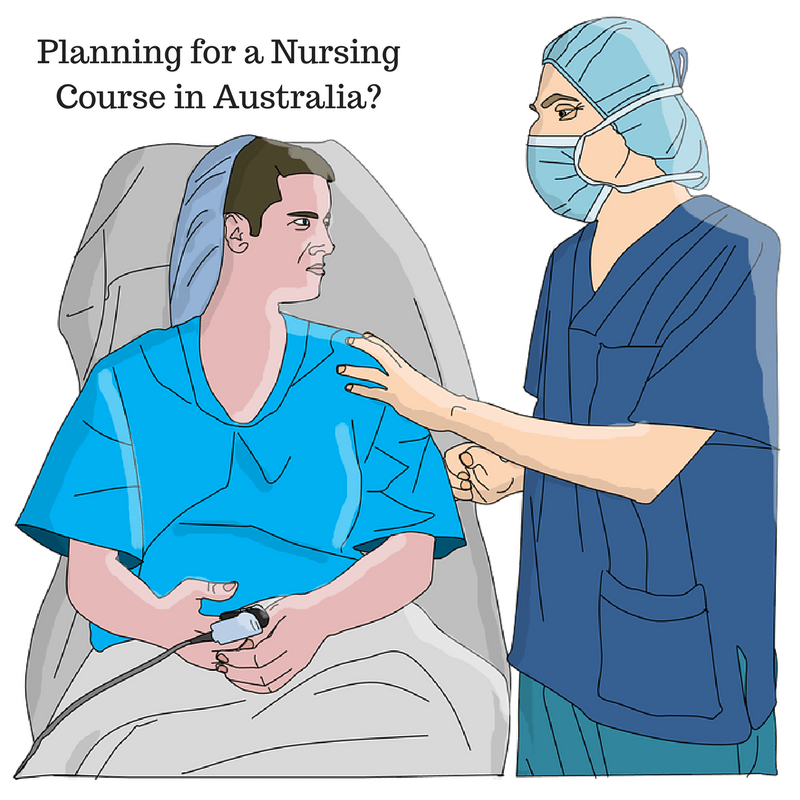Registered Nurses in Australia
Registered Nurses form an integral part of the Australian healthcare system. They have options for employment in a variety of roles and healthcare settings. Currently, the demand for skilled Registered Nurses in the country is on the increase. Joboutlook.com reports that the future growth in this sector is also expected to be very strong. Workforce planning projections from the Department of Health, Australia, clearly indicate that in the medium to the long term the demand for nurses in Australia will significantly outweigh supply. This will lead to an estimated shortfall of at least 85,000 nurses by 2025.
How to become a Registered Nurse in Australia
Given that the career outlook in this sector is so strong, this is the best time to consider a career as a Registered Nurse in Australia! If you are interested in this career option, then you must have a Bachelor Degree or higher qualification. Additionally, you must have at least 5 years of relevant experience. Registration or licensing is with the AHPRA is also required.
The Bachelor of Nursing, which is available at most Australian universities, is a three-year full-time course of study. You can apply via direct entry − or after completing a Diploma of Nursing. In this case, some credits may be transferred toward your Bachelor’s Degree.
If you wish to apply, you must be over 17 years of age or should have completed your HSC. Registered Nurse courses offer a blend of theory and practical nursing education in various settings. You should be willing to work very hard, as the course is rigorous and requires a deep commitment to the profession. Before committing to a degree, you could choose to undertake a short course. You should work as an Individual Support or Community Care worker as well. This will allow you to find out more about working as a nurse before you apply to university.
On Completion of this course
On successful completion of your Registered Nurse course, you have to apply to the AHPRA (Australian Health Practitioner Regulation Agency) to practice as a Registered Nurse in the country. If you are an overseas qualified nurse, you could undertake a short bridging course to bring you up to speed with the nursing environment in this country. Subsequently, you can obtain AHPRA registration and start your practice.
You will get exposure to clinical rotations in diverse healthcare settings. You can use this time to explore various fields of nursing and find out if you wish to undertake a specialty. As your career evolves, you may opt to specialize in a particular area of healthcare such as maternity, surgery, aged care, disability, mental health, and so on. You may become a subject matter expert in your particular domain. Later on, you can even study further to become a healthcare manager or an administrator. Nurses make excellent managers. The reason is they are well versed in all aspects of the operation of the healthcare system.
Nurses in Australia enjoy an enviable lifestyle, great work-life balance, and a sizeable salary package. With the listing of Registered Nurses on the Critical Skills list of occupations, the Australian government welcomes skilled overseas qualified nurses to work in this country. This means that applicants will receive priority visa processing with good chances of immediate employment. You can consider this institute for a nursing course in Australia.
You Might Want To Read:
Mppeb Sub Engineer Mechanical Sectional Test, Learning Materials, Stocks, Vidyamandir Classes Prayagraj Allahabad, Awareness Of Health And Safety Procedures, Uceed 2018, Aieed 2017 Eligibility Exam Pattern Counselling And More, Neet Sample Paper With Solutions 2010 Pre, B A Ist Year, Disintegration Of The Ussr 1991
Leave your vote
This post was created with our nice and easy submission form. Create your post!












Like what you read? Give author a thumbs up?
Bookmark this article to read later, drop a remark in comment section and share with your friends..